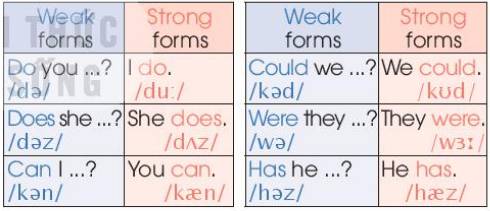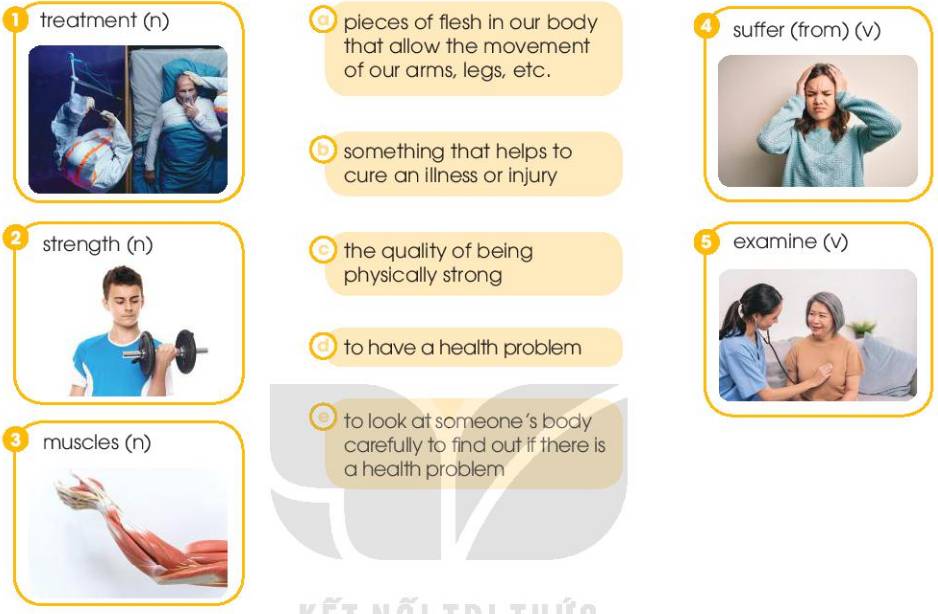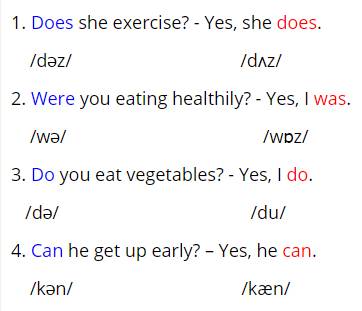II. Language
Các câu hỏi tương tự
Listen and repeat. Pay attention to the strong and weak forms of the auxiliary verbs. Then practise saying them. Mark: Have you started working out again? /hǝv/Nam: Yes, I have. /hæv/Mark: Was it your grandfather who taught you? /wəz/Nam: Yes, it was. /wɒz/
Đọc tiếp
Listen and repeat. Pay attention to the strong and weak forms of the auxiliary verbs. Then practise saying them.

Mark: Have you started working out again?
/hǝv/
Nam: Yes, I have.
/hæv/
Mark: Was it your grandfather who taught you?
/wəz/
Nam: Yes, it was.
/wɒz/
Complete the following sentences using the correct forms of the words in 1.1.The doctor _______ her carefully, but could not find anything wrong.2. He is receiving ________ for his health problem.3. Regular exercise can help you improve your muscle _________.4. To build your __________ you can try lifting weights.5. Nam cant sleep well. He is ______________ stress.
Đọc tiếp
Complete the following sentences using the correct forms of the words in 1.
1.The doctor _______ her carefully, but could not find anything wrong.
2. He is receiving ________ for his health problem.
3. Regular exercise can help you improve your muscle _________.
4. To build your __________ you can try lifting weights.
5. Nam can't sleep well. He is ______________ stress.
Work in pairs. Talk about what you do to keep fit and healthy. Use the past simple and the present perfect.
Example: I have exercised regularly for a year. I went swimming last weekend.
Put the verbs in brackets in either the past simple or the present perfect.1. He (see)______ the doctor yesterday.2. She (suffer)________ from a serious headache, but after treatment, she felt better.3. Our living conditions (improve)______ over the last few decades. Now people live much better.4. The doctor (just, examine) __________ her. Fortunately, the treatment is working.
Đọc tiếp
Put the verbs in brackets in either the past simple or the present perfect.
1. He (see)______ the doctor yesterday.
2. She (suffer)________ from a serious headache, but after treatment, she felt better.
3. Our living conditions (improve)______ over the last few decades. Now people live much better.
4. The doctor (just, examine) __________ her. Fortunately, the treatment is working.
Match each word (1-5) with its meanings (a-e).





